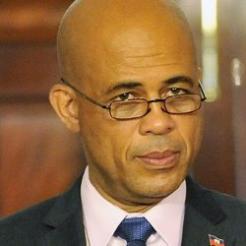Blogging from Haiti after the recent election of Michel Martelly as President, Andrew Chaggar casts a spotlight on the new leader's promises for the hopeful nation.
Last month Haiti finally saw its new President, Michel “Sweet Micky” Martelly, inaugurated.
The historic day ended a long process that involved a first round vote plagued by irregularities, sometimes violent demonstrations and a second round run-off ballot. The day also marked the first time in the country’s history that a democratically elected President handed over power to a democratically elected President from an opposition party.
Many Haitians hope that the long-stalled and massive task of rebuilding Haiti will now start moving again. In fact expectations are running so high that Mr Martelly is facing huge pressure to quickly deliver results and some wonder if he has already made promises he can’t keep.
For example, during his inaugural speech Mr Martelly reiterated his campaign promise of providing free, public education for children. In a country where less than 30 per cent of children finish primary school this will be no mean feat and I’ve heard more than one Haitian refer to this pledge as the “Martelly Miracle”.
To help fund such an ambitious promise Mr Martelly has already started courting Haiti’s extensive diaspora for their dollars. Through a proposed 1 per cent tax on wire transfers into the country and a 5-cent levy on phone-minutes the new president hopes to raise over $80m a year. However with the Inter-American development bank estimating over $3bn being needed to adequately fund the education system this would still fall far short.
Use of aid funds
Of course billions of dollars in international aid, pledged immediately after the earthquake, could start being released now that the matter of presidential power has been settled. However to access these funds Mr Martelly will also need to keep other promises to fight corruption and increase transparency. As part of this process the new President told CNN that one of his first priorities would be to nominate high court judges and create an independent judiciary.
While Mr Martelly is certainly determined and, as an ex-Pop Star, charismatic, he will face huge challenges in driving through his political agenda. The country’s legislative elections, held in parallel to the presidential race, saw eighteen reversals between the preliminary and final results and almost all of these favoured the party of the outgoing president.
As a result of this Mr Martelly’s own party has been left with only three seats in Haiti’s lower house and none in the country’s senate. Consequently the new president is already facing his first parliamentary battle and some report his choice of new Prime Minister has little, if any, chance of being confirmed by majority senators and their deputies who make up the houses.
Combined with other contentious proposals, such as reforming the Haitian army which was disbanded in the 1990s, Mr Martelly’s lack of power in Parliament mean that the political novice will need to summon some very deft diplomatic skills to push through the change he has promised.
However, given that the man was once considered a rank outsider for the presidency, and that the first round of election results initially put him out of the race completely, there is little logic to underestimating him now as he actually takes office.
As for international aid organisations, there are implications stemming from the recent change in power. Mr Martelly also pledged during his campaign to reign-in foreign NGOs that often seem like a parallel government here in Haiti. What that means exactly for their international staff and volunteers is yet to become clear but Mr Martelly certainly has everyone in the country’s attention right now.









